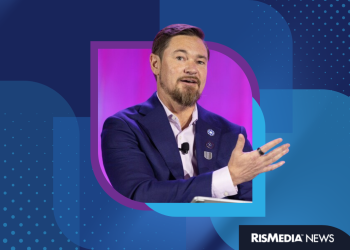RISMEDIA, June 29, 2010—Because large financial institutions spend money on elections and advertising, they are able to control the dialogue and thus have been able to deflect any sort of accountability for the foreclosure epidemic they designed and executed.
Through their public relations efforts they have tried to make it seem like deadbeats have defrauded them and caused the collapse of the economy. They admonish us to honor our obligations even though they made it impossible for many to do so.
Then they roar off to the country club in their Bugatti Veyrons and their Maybach Zeppelins.
They actually have generated some sympathy by promulgating the old stereo-type of a prudent bank lending it’s own money to a working member of the community to purchase a home at a loan to value ratio that does not put the bank’s money at undue risk, and with a rate and terms that will not drive the borrower into default.
Today’s “too big to fail” banks are nothing like that, and the financial collapse of American households has been extraordinarily profitable for them.
In fact, they aren’t really banks at all; they would more correctly be defined as financial intermediaries. They are simply skimming middlepersons with no risk, no investment, and no skin in the game.
What they do is pass other people’s money back and forth, taking a little piece here and a big piece there. Then they select the right balance of good and bad loans to cause the pool to default and buy insurance that also pays them when the bad loans inevitably fail.
They make way more money on defaulted loan pools than they do on those that are performing. They are marketing machines, deliberately putting other people’s money at risk and then betting it won’t be paid back.
The only two limiting factors were the number of loans they could originate and assuring that the pools would have a sufficiently high enough number of individual loan defaults to declare the pool in default and collect on the insurance.
This could be achieved, in part, by creating loan products that would expand the market for money, pay higher interest, and have aspects likely to contribute to default.
In addition, by first inflating values and then driving them back down, a rising market allows for more lending; a falling market triggers more defaults. If you could rig both, you would have the perfect storm.
They undertook sophisticated studies to determine exactly what elements would contribute to a default, and then simply designed loan characteristics that would increase the statistical probability of default.
Historically, prior to the explosion of securitization, only about one percent of loans wound up in foreclosure. They couldn’t be certain that people would default in sufficient numbers to collect on the swaps so they designed the loan itself to fail, and then went hunting for people to trick into it.
And the success of their efforts cannot be denied with about 15% of mortgages currently in default, according to the Mortgage Bankers Association, the results speak for themselves.
When you say sub-prime loan, most people think of unqualified borrowers. That’s a total mis-direction. Many people with excellent credit were steered into sub-prime loans. The loan is designed to fail, deliberately targeted in a predatory manner, and represents a fraud upon both the borrower and the investor, neither of whom understand the true intent of the “bank.”
The bigger problem for these “banks” was the very finite number of potential borrowers.
Without debt, these financial intermediaries have nothing to sell and their business model fails. Conversely, the more debt they can sell, the bigger the bonuses. That creates a powerful incentive to package debt of any type by any means necessary.
If they only loaned money to the people who wanted it, there would not have been huge pools of mortgages to aggregate and sell off to investors.
In fact, many people










